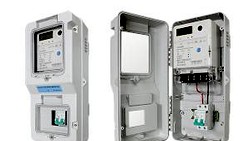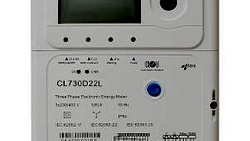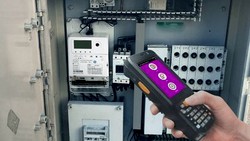In the rapidly advancing technological landscape, businesses and utility providers are increasingly turning to smart metering systems to optimize their operations and improve financial efficiency. Smart metering, which involves the use of advanced metering infrastructure (AMI) and real-time data collection, offers a range of potential benefits, from operational efficiencies and accurate billing to reduced meter reading costs and improved asset management. However, to make informed investment decisions and maximize the return on investment, a comprehensive cost-benefit analysis of smart metering projects is essential.
The target audience for this article includes utility providers, energy companies, and decision-makers involved in the implementation and management of smart metering systems. It is also relevant to financial analysts, consultants, and stakeholders who are interested in understanding the financial implications and benefits associated with smart metering investments. Additionally, policymakers and regulators in the energy sector seeking insights into the cost-effectiveness of smart metering initiatives will find value in this analysis.

(symbol Image, Credit CLOU)
Assessing Financial Benefits
When conducting a cost-benefit analysis for smart metering investments, it is crucial to evaluate the financial benefits derived from various factors. Here are some key aspects to consider:
Operational Efficiencies
Smart metering systems provide real-time data on energy consumption, allowing utility providers to monitor usage patterns and identify areas for improvement. By analysing this data, operational efficiencies can be achieved, such as load balancing, peak demand management, and proactive maintenance. These efficiencies can result in cost savings by optimizing energy generation, reducing system losses, and enhancing overall grid performance.
Accurate Billing
One of the significant advantages of smart metering is its ability to provide accurate and timely billing information. Traditional metering methods often rely on estimated readings or manual data collection, which can lead to billing discrepancies and customer disputes. Smart meters eliminate these issues by providing precise consumption data, ensuring fair and accurate billing for customers. This improvement in billing accuracy reduces revenue leakage and enhances customer satisfaction.
Reduced Meter Reading Costs
Traditional meter reading requires manual intervention and periodic visits by technicians, which can be time-consuming and costly. Smart metering eliminates the need for manual readings, as consumption data is transmitted remotely. This automated process reduces meter reading costs, including labour expenses and vehicle maintenance, while enabling utility providers to allocate their resources more efficiently.
Improved Asset Management
Smart metering systems enable proactive asset management by monitoring the health and performance of meters in real-time. By detecting and addressing issues promptly, utility providers can minimize downtime, reduce maintenance costs, and extend the lifespan of their metering infrastructure. Effective asset management ensures optimal performance and longevity of the smart metering system, maximizing the return on investment.
Meter Lifecycle Management and Maintenance Costs
While smart meters offer significant benefits, it is crucial to consider the lifecycle management and associated maintenance costs. Smart meters have a finite lifespan and require periodic upgrades or replacements. Evaluating the costs associated with meter replacement, firmware updates, and maintenance activities is essential to determine the long-term financial viability of smart metering investments.
Potential Revenue Streams from Value-Added Services
Beyond the operational benefits, smart metering opens up avenues for value-added services that can generate additional revenue streams. For example, utility providers can offer energy management solutions, such as real-time consumption monitoring, demand response programs, or energy efficiency recommendations to customers. By leveraging the data collected through smart meters, these value-added services can create new revenue opportunities and enhance the overall financial returns of smart metering investments.
Continuous Evaluation and Adaptation
A cost-benefit analysis is not a one-time exercise but an ongoing process. Smart metering technology continues to evolve, and the financial landscape surrounding utility operations may change over time. Therefore, it is crucial to continuously evaluate the cost-effectiveness of smart metering investments and adapt strategies accordingly.
Regular monitoring of financial metrics, such as return on investment (ROI), net present value (NPV), and payback period, allows utility providers to assess the progress and effectiveness of their smart metering projects. By comparing the projected benefits against the actual outcomes, adjustments can be made to optimize operations, identify areas for improvement, and ensure continued financial viability.
Takeaway
Smart metering investments have the potential to deliver significant financial benefits to utility providers. Conducting a thorough cost-benefit analysis is crucial to evaluate the financial viability of these projects and make informed investment decisions.
By assessing the benefits derived from operational efficiencies, accurate billing, reduced meter reading costs, improved asset management, and potential revenue streams from value-added services, utility providers can maximize their return on investment and pave the way for a more efficient and sustainable energy future.
Continuous evaluation and adaptation are key to ensure the long-term cost-effectiveness of smart metering investments in a dynamic and evolving industry.
If you are interested in more information about the benefits of our smart meters and system solutions, don't hesitate to contact us and step into a discussion with our experts.
Editor's note: This article was originally published in July 2023 and has been updated for comprehensiveness.






All comments are moderated before being published. Inappropriate or off-topic comments may not be approved.